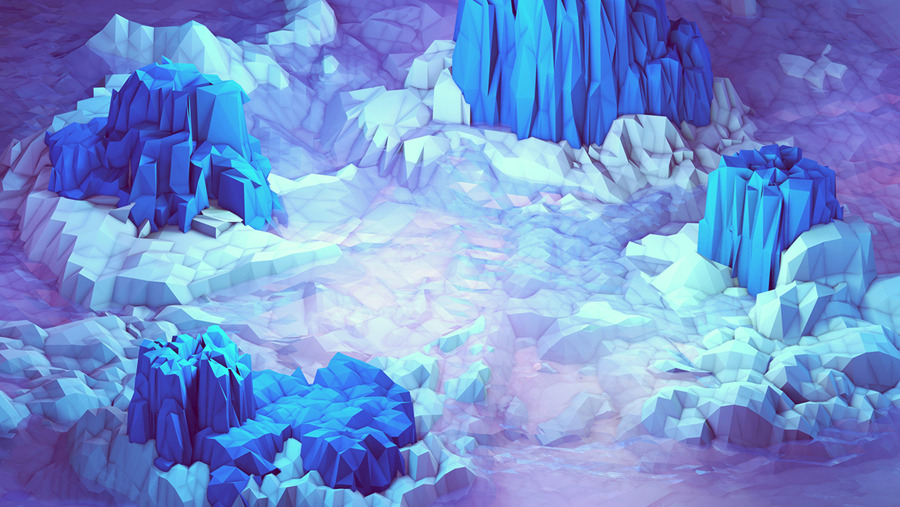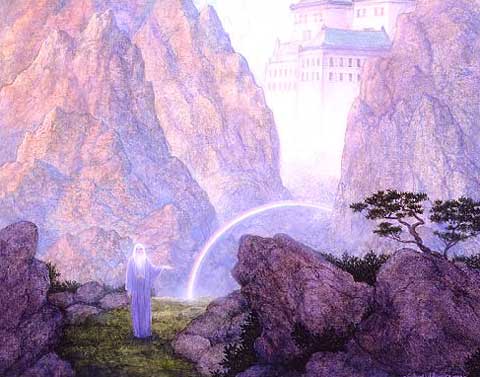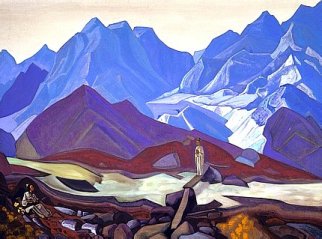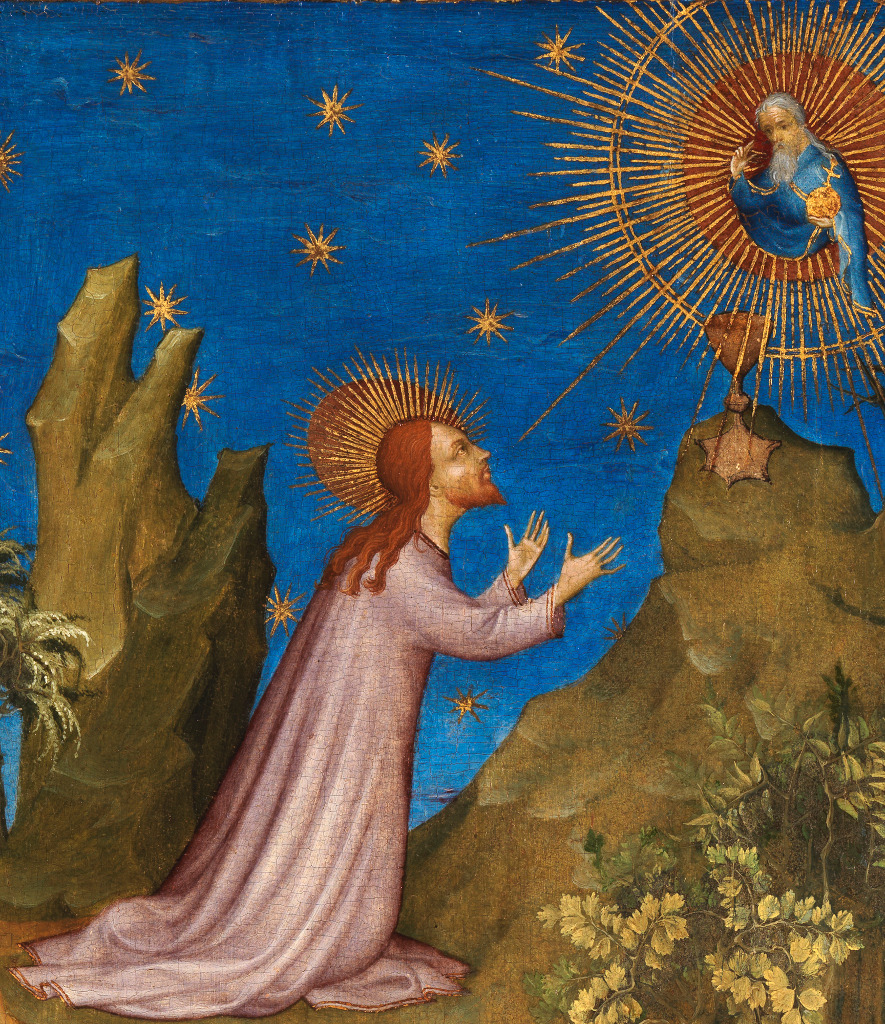Ferns and tufts of long slender grasses draped over the hillocks all the way to the creek-bed. Overhanging drowsily in muddy incline were the vast bulrushes, bending heavy with overgrowth alongside their companion fellows, the sweet reeds and the twisty willows, all thirstily meditating the properties of the sun and the water about. Those very properties (to be described as best as one can) of that sun and that water as they were known in this sanctuary, were unlike the sunshine of timidity that we are accustomed to. For theirs was perpetual and everlasting, without so much as a cloud to come between its radiance and all that lay beneath. It remained fixed in the sky, staying somewhere between tens and elevenses. This Sun remained host to the ethers about, without the usual interruptions and nightly intervals.
Of course you might well then wonder, what of the stars, should there be no night sky to know them by? Well of course there were the walking stars, the souls of the folk in that place that are as the living stellar beings circulating the land instead of the sky above... But also, quite oddly, there was a way in which each one could find his entrance into the blazing heavens, and that was with inner sight, with the closure of the outer day. For amongst the velvety darkness, in warm and gentle lights diffused a'many, singing as they do from one to another, there was always especially to be found, before each man's eyes upon sleeping - just on the closing of the lid - there was the opening to that great and vast window past the brilliance of the immediate Sun.
Has anyone ever told you that the Sun in part, is quite green? Not to look at, of course, yet moreso characterized in its true nature; just as men are known also by the color of their eyes, that small but all-telling color, and that is they there in that color. Well it is so with the Sun itself; its eyes if you will, are green, a glorious green, a golden green, a ripe, effervescent and lively green.
The days in this place therefore, held to something of a tedious repetition, a constant accumulation, running beside each other without definition, without distinction. So because of this there was no calendar to mark the days as days, and no festivals to celebrate because there were no calendars besides.Yet this single day did seem conducive to concentration, proving useful to the single-minded men, with whatever their thoughts were bent upon. Whilst the dreamy-minded women who lived there alongside, could likewise care not for the time that passed, but give themselves up to the moment however long it became.
Now and then they would pass each other in thought, the dreaming women could see the men's intent as it proceeded out from their concentration and flew into the future. Whilst ever occasionally the men would stir from their great projects and happen upon the caress of a passing dream which had included them in its imaginings.
One such man, Craven, a local resident in that place, was in meditation that day when his accompanying Muse addressed him:
"What is today?" she would ask him, as if for the first time.
"My Birthday!" came the reply, as it was conveniently affixed and to remain.
"Is it my Birthday too?" she would eagerly, greedily urge.
"No, mine alone!" he would tease, and then add, "But you and I will celebrate together, because you, my darling, can at least share in mine."
The reasoning was, that just as the Sun had to perpetually shine, it was similarly so that all men held the full profit of knowledge beyond the making of their Muses, who all the while had to be content with learning from their endeared companions.
Every man-soul had his friend and every child also, but not all knew them well enough to necessarily recognize or converse with openly. These Muses were interpreters of all things otherwise foreign, and inspiritors of such things hidden, that they managed to find their ways to talk to men nonetheless, even if the men themselves were unaware of it.
"Look, see here!" she begged his attention.
But in untoward behavior he ignored her, still taken to his sleepiness - "deep thought" he told himself. As well he might, so deeply taken was he that it threw him past the eons of Graces, into those regions removed from the lost and the found... and with his being cast likewise, he did not hear her or care for her. But however, she knew exactly where it was, and kept watch over it for him until he awoke.
His name was Craven. His Muse was nameless. Not because she lacked being or identity for that matter, but was as insubstantial as she was real, and had not yet been afforded a name. Names endow realness to something don't they? When born at first we are given our names, but this Muse, like so many others, did not have such a name, more often to be mistaken as part of his own nature and mind all told - but then this she was also, even though a museling as well.
He, alike to most man-beings, would bully her at times with his well-considered authority, and on this day, on this part of the big day, he had forced her into one of her hiding places again, deep within a split tree stump, where dejected from his disregard she would sulk and weep and glumly sit in mock protest.
Meanwhile an aged scrap of a man came forth and took position upon Craven's rock couch. With sallow skin and sunken cheek, he had all the appearance of Death himself. He said, almost addressing no one but himself: "I am accursed, I am accursed, for this vision aggrieves me so".
He then turned to Craven and burst into plentiful tears.
"Tell me old man what this vision is that has brought such unhappiness to you? Surely it cannot be all that bad" he added kindly, yet the old man before him wailed even louder.
Seeking a mild distraction to offer him, Craven inquired gently of his name.
"I have no name to speak of, at least I used to and I did, before I had it stolen from me" he muttered ruefully... "And now all I have is this vision that returns every time, every time that I look inside; and I can stand to look no more!"
Craven placed his hand upon the bony forehead of the forlorn man, which he could then see as he did see - for in this place such things were possible; it was as a physical and immediate empathy. As his hand trembled ever slightly, resting on the tormented head, he was shaken like never before. He was saddened and wrenched into perilous grief. He was lost to the wretchedness of certain despair. He was torn inwardly with rents in soul, piercing all but the spirit. For the daunting vision he saw was the witnessing of Christ's own agony - His Pain, in His Persecution. So this was what the old man had suffered repeatedly, without remission!
Craven jerked his hand back hurriedly from the old man’s forehead, but the anguish had contaminated him already. His arm ached in a current of sadness which ran all the way through to his heart. The old sage's temples had relaxed momentarily, but his head was still cowered in sorrow.
The call of many an Easter's celebration echoed across the ethers and into his memory, when assuredly Craven maintained "Christ is risen old man. I see Him as He stands at your side just there! Christ has risen I tell you, you can mourn no longer my friend for He is cheery and resents not our sins."
"But I see Him I tell you!" The man began to wail once more, "Here, if you do not believe me, look again!"
So saying this, he made a grab at Craven's wrist and urged him to place his hand back onto his mind's picture. Reluctantly Craven complied, while all the while the water burbled contentedly, playfully, just close by.
Overswept by emotion once again Craven felt the darkness close in all around him with an anxiety and coldness; every guilt and fear he had ever known clutched at his throat, burned his eyes and pained his chest, for there once more he saw our Lord in degradation, and somehow if that wasn't enough pain in itself, he also felt utterly responsible.
It was just then that the two men were interrupted by the rustlings of a third approaching, another man, clad in fur-skins, fur which was of a soft grey graduation. His appearance was attractive, self-assured but not self-conscious. He openly smiled a greeting.
"Uncle, I have looked all over for you. They are waiting and you are overdue, what in Heaven's name brought you here?"
He hesitated after a reproachful frown and then turned to Craven saying: "I hope that he hasn't been bothering you . . . I'm Deva, his ward, a ward that spends more time these days caring for him rather than he for me, I might add!"
"Craven!" said Craven, holding out his hand (handshakes are universal - at least they are where people have hands).
He added, "I am not in the least bothered by your Uncle" he said this as a polite reassurance, but felt the pang of deceit at having just endured one of the most harrowing and disconcerting experiences he would ever feel. Deva did not appear believing.
"He has that effect on everyone" he said, and then mumbled something under his breath inaudibly. He continued: "I myself have not seen this picture that I've heard of, but I've met with too many to date who certainly have. The power is extraordinary!"
Here he too looked troubled, and then went on: "I've seen Uncle come away from fighting men who have collapsed in grief, dancing women who have flung themselves into domesticity; and ... " he lowered his voice, "I've also seen men lose their minds after seeing it. Snap! Just like that! They've lost their minds I tell you!" Then he finally added, with an unfriendly air pointed towards the elderly man accusingly, "And it's all his fault!"
It was at this point that Craven disregarded the fearfulness of the whole situation and actually was brought to feel sorry once again for this 'Uncle'. It was obvious to him that the Uncle himself could not be brought to answer for the martyr-enchantment that he now was caught up in. It also occurred to him that he himself would not be free of that vision until he effected some help or relief for this old master. So smiling as casually as he could manage, he asked Deva, "Would you like me to take care of your Uncle for a few hours?" Fortunately he had not offered to take care of him for the rest of the day, else this obligation would have been for a very long time. Deva was delighted, but then drew back a little with a second thought.
"No, perhaps it might be better if I take him home with me now, he really can cause a lot of trouble with his ways you know; and besides which ... " he paused thoughtfully, "Oh what am I saying! Yes please, if you wouldn't mind I'd be grateful; and I do have some things that need to be done, places to go, people to see and all that - where I can't take him."
"Alright then, sounds good to me. How about we say, back here in, oh, four hours?"
Deva nodded.
"Fine by you?" Craven turned to the Old Man.
"Fine by me" said Uncle looking sideways, then saying under his breath as Deva turned to depart, "Never seen him before in my life".
The 'Sultanus' were the people 'in the know' about everything, so to speak. Their services they considered underrated and under-used, but were pretty well kept busy with all affairs that could not be settled with or understood by fellow men who had not yet the 'sight' established within themselves.
The fraternity boarded up in something equivalent to a timeshare village arrangement, for it was a floating population which passed through and stayed, depending upon their individual concerns. But one could always be guaranteed that a Master would be on site at any particular time; just not any one particular Sultan, unless of course he was called in for especially.
Uncle was amiable enough, glad to have the interested company, and though he walked slowly he kept pace with Craven the whole journey's length. There were roads they could have used, but Craven preferred the country shortcut he knew, which apart from the scrummage amongst the blackberries and the nettles, the two kept in humor and loved every minute of the walk.
Presently they came to the great lake. This lake opened out as wide as the eye could follow; in the distance there were piers with little boats moored, and huts leaning one beside another almost at the water's line. It curved in and out of the surrounding hills, with a glistening going on into the distance, beyond which one could not tell what lay.
The neck of the creek idled, gathered and then dipped into the lake; and a bridge, newly built, crossed its preamble into the main. Once over this bridge (a bridge with no tolls and no trolls) they eked their way up an embankment - Craven leaning back, drawing Uncle up the slippery part - and to the side entrance of a large garden wall which surrounded the homes in the village of the Sultanus.
The garden wall was of massive proportions, the brickwork was stuccoed and tiled and stood over fourteen feet tall. The tiles themselves were the exact colors of the surrounding garden, harmonizing in a way that brought pictures without calamity, with a bright white background and brickwork edging.
The pictures were of all kinds of scenes, some not so distinct, some patterned, some complete. But travelers were known to come to this wall, just to stand and admire the work that was upon it. Artists would come to sit and copy the relief, and children would be brought, large and small; the delight was in all.
At the top of this wall sat a great line of birds - living birds, not sculptured ones - each had a brick a piece. They were not uniform, not in groups or size and nor did they bicker (which, amongst birds is rare indeed), but they took to their station at the site, perched above. When one flew off another would come in its place; and so the whole complete vanguard remained, to the extraordinary fascination and appreciation of the onlooker.
When Craven had first happened upon this place he had fancied that it would, according to mystical bibliography, have no visible entrance and require some code or some trick which he could not access. But plain as plain could be, there was a gate and a door, front, back and even at the side in the garden wall; and it was to the side door that they made their approach.
"Craven!" a voice cried out with exuberance and joy.
"Master!" Craven called back - feeling welcomed and glad to be welcomed already. The bolt on the door clanked, the hinge groaned as it swung wide open. Uncle drew his breath, forgetting himself as he looked into the gardens which lay inside. Neither man was an accomplished gardener but both could see that paradise did indeed need a caretaker! Wildness and randomness in a garden can be natural and beautiful, this is so, but here in this garden there had been a design and a planning, a pruning and a tending, a confabulation of wildness expressed and wildness contained. The hand of man, God and nature-spirit, had composed the complex harmonies here, and the perfumery was magnificent!
Was it the fertilizer? How often that one was asked! The colors did seem to be a little more than the usual - the blossoms more buxom, the leaves burgeoning, the fruit unblemished and plentiful - it was truly worth the visit, if not for the garden alone.
"Master, I have brought a friend to you who has lost his name and his sanity as well. I was hoping that you could help him?"
"Is this true?" addressed the Sultan to Uncle enquiringly. He did not seem as perturbed as Craven would have him - reserved, yet not in fact, as 'quick to respond' in such ways as was expected. His eyes smiled beyond his stern frame.
The Old Man nodded and then took faint. He and Craven were brought inside the gate and directed into a small anteroom which lay at the entrance to what appeared, by its doors, to be a much larger area behind. There were windows in the ceiling and so the area was warm and lit; terracotta floors and not much else, save for the seating of wood.
"If you put your hand up upon him you can see a picture which will tell you from what it is that he suffers" said Craven.
"Thank you, but there is no need for me to do that." replied the Master thoughtfully, "For I saw it upon him from the first at the entrance. Your friend here has met with Death."
He continued, "It is a common enough belief for men, that to meet with Death means that you are obliged to follow, but this is not so, not in this spiritual world and its reality.
"When our Lord took it upon Himself to descend into Hell and deliver men from the greater death which threatened their souls, He gave His experience to all men thereafter. Whether seen or unseen every man knows for himself the piety of Christ and his reverence for Man. For not only does He revere our Father, but also our Father in Man and in our Manhood.
"As men we may well fear what we perceive in Christ's agony, but it may be known and remembered, that for Himself Christ did not fear this. Nor did he fear Death or its consequence, and neither did He give in to the demands he suffered from.
"All initiates must come to the Cross. It is as natural to the soul of man as food goes to mouth and travels downward. But this food of the spirit is no ordinary happening with an ordinary response, it is explicit, fundamental; it is the contrast to know great joy by.
"He did not fear the afeared. He would not have you do so for Him. There was no demon or sin which could inhibit His Loving Sacrifice for Man; there was no going back without the retrieval of each last one.
"Can you forgive the World of its evil? Or do you take to yourself also the blame that you feel? Do you despise, or are you brave enough to trust, trust that men, all men (meaning you included) are beyond the reproaches of sin and even death?
"Old Man, you gave many the opportunity to find their gravity and come to a seriousness which will suffice their love yet further. And now if you can come to that forgiveness of the World and of self, you may yet move past this as intended.
"We become indignant on His behalf, and protective of His Valor, but we must also know then that if He can forgive the World its woes, then it becomes that example we must follow.
"We may wish to please, and with ambitious enterprise work to be the pride of His glorious army, but also we must come to know that each is precious in His sight - no more one than another - and even still we must try, therefore, not for our own sake but for His.
"We may ridicule ourselves and admonish our shortcomings so, but this we may come to know, that in this time the army is but few, and the determination known in the bones that goes soul-deep speaks comforts to our Christ, that we are one with Him in this Spiritual Life. Do not discount yourself for that does injure Him cruelly.
"Craven, you have done well to bring your friend here to our fort. His anguish will pass and to youth he will return. He may still induce a stirring, but not to the same degree, his work was quite before. For he has earned his peace to know, and is better qualified to pass that on now.
"You did not ask for yourself today, but I am aware that when you came you were troubled also. How can there be such a contrast as known between the greater sorrow and the greater joy to follow? You have seen Christ as almost defeated, with evil both there and then somewhere in you, but you have also seen His actuality as it lives in both love and concern. And you wonder if after such mortal sorrow you could ever be truly lighthearted again? I do not know.
"Perhaps it is enough to become a fellow member in the extravagant passions? He knows the hearts of all men, and the judgment, if any, is not hesitant to love. An extravagant passion spends itself more fervently than commerce. It spends and expends until it is spent, until the man is wrung out and emptied of himself. That he gives fully and unreservedly, and in love the grace returns. His peace resumes. Death passes by and life reforms."
Craven appeared satisfied with this advice, and settled back in his chair relaxedly.
The Master turned once more to the Old Man who gaze was fixed upon him with a wide-eyed marveling, and he said to him softly "When you see Death again you don't have to go with him you know. He cannot take you where he wants to go."
"Death?" the Old Man questioned.
"Yes, the chap you were with but a few hours ago."
"No, not Death" interrupted Craven, "that was Deva" he explained.
"No" replied the Master, "that was Death... and you can't believe anything he says"; he then pointed to the Old Man and said: “And that is Deva.”
"The guy in the skins that didn't belong to him was Death."
["Craven": Characterized by abject fear; cowardly.]













No comments:
Post a Comment